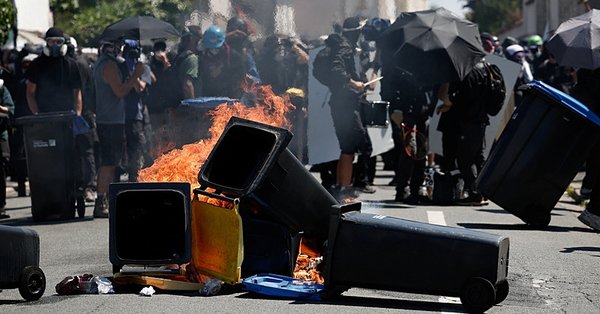Violent clashes erupted in the French port city of La Rochelle on Saturday as approximately 4,000 demonstrators rallied against the use of water reservoirs for large-scale agriculture. The confrontation resulted in injuries to one police officer and five protesters, with at least seven individuals arrested.

The protest, which began peacefully, turned violent in the early afternoon when a group of demonstrators, described by French Interior Minister Gerald Darmanin as “radical, extreme left wing participants,” began attacking property and ransacking a supermarket. In response, police deployed tear gas and water cannon trucks to disperse the crowd.
“It is hard to see a link to defence of the environment,” Darmanin stated on X (formerly Twitter), condemning the violent turn of events.

The demonstration initially gathered in front of Soufflet Negoce, a grains trading business owned by French cooperative group InVivo, before marching through the city. The protest highlights growing tensions over water resources in France, exacerbated by recent droughts. Critics argue that large reservoirs for agricultural irrigation are wasteful and primarily benefit large farms at the expense of smaller operations and the environment.
This incident follows similar violence that occurred during a protest against agricultural reservoirs in Sainte-Soline, western France, in March of last year. The recurring unrest underscores the escalating conflict over water management and agricultural practices in the country.

The timing of these clashes is particularly concerning for French authorities, as the country’s security alert is currently at its highest level in preparation for the upcoming Olympic Games. The opening ceremony, set to take place on the River Seine on July 26, has heightened security concerns across France.
As investigations into the violence continue, the incident in La Rochelle serves as a stark reminder of the complex challenges facing France in balancing agricultural needs, environmental concerns, and public safety, especially in the lead-up to a major international event like the Olympics.
Credit: Reuters



